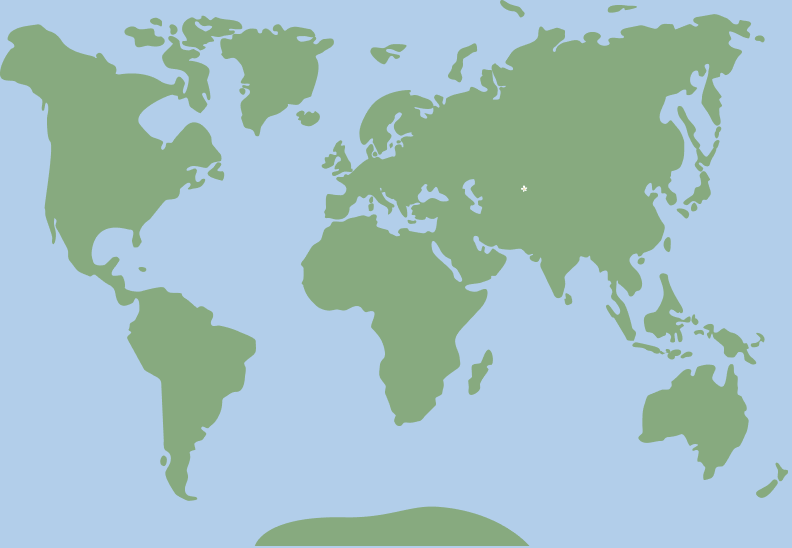Buenos Aires, Argentina
Basilica of Our Lady of Lujan
This Argentinian basilica is home to a famous icon and 15 bells, each with a different name and motto.
Odessa, Ukraine | C.2001
The only current monument to Islam in Odessa, the Al Salam Mosque and adjoining Arabian Culture Center are emblems of the long Muslim history in the Ukranian port city. Open as a place for prayer and to introduce visitors to Arab culture, the Moorish-style building includes a school for Arabic language and a library.
The Muslim tradition in Odessa has a long history spanning many centuries. Odessa was built on the site of an ancient Tatar settlement called Hadzhibey. Founded in 1240, the settlement was established by Haci I Giray, the Khan of Crimea. From the 16th to 18th century, the city was a Turkish fortress with a flourishing Muslim population.
When the Soviets rose to power in the 20th century, life for Odessa Muslims changed. The Tatar mullah, Sabirzyan Safarov was shot and his mosque was closed, then later destroyed. Funded by Syrian businessman Kivan Adnan, the Al Salam Mosque has brought a sense of Muslim culture back to Odessa.
A prayer hall is situated at the entrance of the building, where men and women remove their shoes upon entry and women don long gowns with hoods. The Mosque’s interior is very open and airy, with nearly no furniture with the exception of a few bookshelves. The entire floor is covered in soft carpet, and its patterns seemingly divides the carpet into squares to serve as space for worship.
In recent years, violence and political unrest have shaken the Muslim community in Odessa. Yet, the Al Salam Mosque stands tall among the city streets as a haven for Muslims and a beacon for future growth and prosperity of the religion in the region.
 46.4729639, 30.7396525
46.4729639, 30.7396525
Max file size is 40MB. JPEGs are preferred.
You do not have permission to view this form.Need an account? Sign up
This site is protected by reCAPTCHA and the Google Privacy Policy and Terms of Service apply.
Know more? Share with the community!
Submit Your ImageLogin/Sign Up.